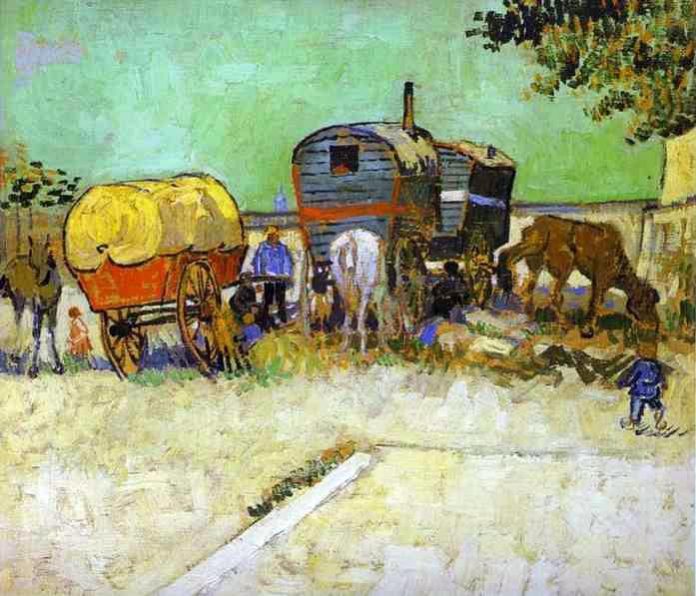Stakeholders from European level organisations and members of the European Economic and Social Committee (EESC) gathered in Brussels on 29 October 2018 to take stock of the state of play of the health situation of the Roma and their access to healthcare, assessing in particular the situation of women and children. A number of issues were highlighted, such as discrimination in access to healthcare, differences in life expectancy between Roma and non-Roma people, poverty and its effects on their health and, regarding women and children, forced sterilisations, pregnancy, infant and maternal mortality, and the vaccination of children.
“The situation of Roma people in relation to health and their access to healthcare is shocking and appalling”, said Erika Koller, president of the EESC permanent study group on the Inclusion of the Roma. “I am ashamed that this is happening in the world in the 21st century. Discrimination and anti‑gypsyism are still very widespread”, she continued.
Romeo Franz, Member of the European Parliament, stated that the whole of Europe was exposed to anti-gypsism, as these prejudices had for centuries been ingrained in European culture. “There is not a single European country where Roma people have equal rights to non-Roma people”, he said. “Roma people are never involved on an equal footing in policy making aimed at improving their situation. They are treated as the problem, not as the people to speak with.” In addition, Roma people rarely receive the funds allocated to them through financial support programmes. “We need to fight corruption so that the Roma community gets the money meant to lead to greater inclusion”, he continued.
On the same wavelength was Marius Tudor from the European Public Health Alliance, who emphasised that EU and national governments should invest more in trying to eliminate the healthcare gap for Roma people. “It’s a European issue which needs European coordination and no silos”, he maintained. “It is essential to involve the Roma people, as well as all other minority and vulnerable groups, from the grassroots level”, he added. “Life for Roma people is a struggle to survive. Members of the Roma community live between 5 and 20 years less than the rest of the population.”
Stanislav Daniel, representing the International Step by Step Association, stressed that the main reason for inequality was anti-gypsism and it was therefore key to avoid setting different, discriminatory standards. He also reiterated the call for Roma people to be included in the policy-making process and pointed out that social protection needed to be accompanied by social inclusion. “In other words”, he pointed out, “social protection measures have to be made accessible, for example by covering the costs of transport and meals, otherwise they are pointless”.
When Roma women “meet health institutions”, they face terrible problems, from segregation in maternity care departments to separation from new-born babies. Jelena Jovanovic, member of the Ergo network, highlighted all the potential issues and drew attention to the importance of using specific wording when addressing future recommendations to EU and national decision-makers. “We have to fight stereotypes of the Roma and avoid empty expressions”, she advised. “For this, we need different narratives, more knowledge, and more participation of Roma women in policy-making.”
Maria Evgenieva outlined the views of the Trust for Social Achievement Foundation and examined the case of Bulgaria. She pointed out that the infant mortality rate was unacceptably high, and that home visiting programmes for pregnant women and small children had proved to be effective. “They are at the beginning of a change in their lives”, she said. “We must say “no” to segregated schools and discrimination. We must change the way of thinking of the entire nation and it is important to start working with the media in order to counter prejudice.”
Ms Koller also stressed the point that more needed to do be done: “Not much has changed in the situation of the Roma in recent years. We need to focus on people, to act quickly and to bring about a real social revolution”, she concluded.

